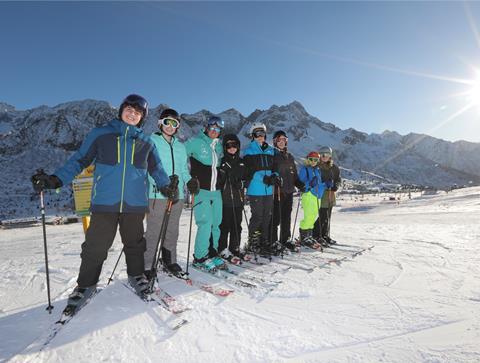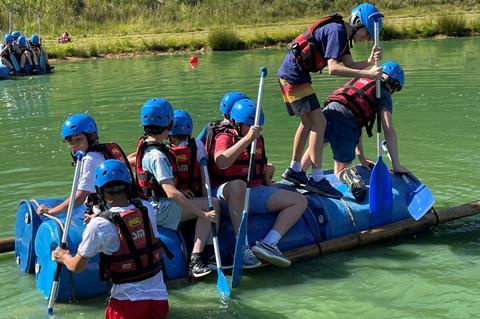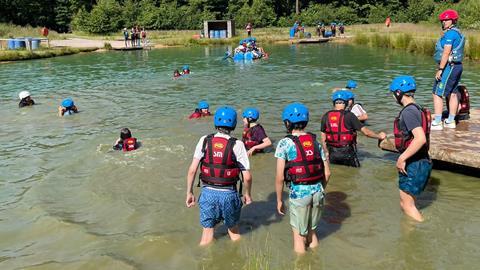We caught up with Joe Hughes, EVC at Eaton Square Senior School in central London, to hear about the challenges of organising a trip in the city and what the first steps should be after that initial idea.
You’re based in central London near the likes of Buckingham Palace. What impact does this have on learning outside the classroom?

It’s a double-edged sword really as we have some wonderful attractions close by. Our drama department is always planning theatre trips, whether it’s part of the curriculum or as a whole year group for a team building experience, and being in the city you get a huge range of opportunities to go to different performances. The flip side of this is you must plan in certain factors like city transport, protests, crowds etc. For example, at the time of Queen Elizabeth II’s funeral, getting around was really difficult and one or two trips were impacted as a result. So, to run an effective trip, I always have an initial discussion with the teacher who has the original idea, plus the senior leadership and pastoral team, to plan out anything that might happen and put contingency measures in place.
Is that conversation always the first place to start when organising a trip?
Yes, our process is to ensure we always have events in the school calendar, whether it’s residential trips, international trips or a theatre visit down the road. As an educational visits coordinator (EVC) it’s important to make sure the trip is effectively communicated to staff, parents and students, so it always needs to start with that discussion and an initial idea being raised. It also needs to have a link, whether it be geared towards curriculum or pastoral requirements.
Can it be tough deciding on trips in London with so much to choose from?
Teachers do tend to come to me with that first idea and I always say to go away and make those initial enquiries to check if it’s suitable for our students. Sometimes we go to suppliers and school tour operators that we can lean on for support if we’re not entirely sure where the pupils will get the best experience. If it’s for theatre, art or English, not only do you have wonderful institutions like the V&A, The National Gallery and the Globe Theatre, a lot of these places will have specialist courses designed for educational visits and also carry the LOtC Quality Badge which helps that process.

Is it essential for attractions you use to have the LOtC Quality Badge?
It’s definitely an added bonus but I wouldn’t say it’s a necessity, although it’s in our school policy that we look for an LOtC Quality Badge. If there isn’t a badge accredited to the provider then we have a series of additional checks we do, which includes obtaining a statement from the provider to ensure they are suitable. Our forms are never there to scare off non-accredited providers, but simply to make sure the trip is safe and enjoyable for students.
What is the LOtC Quality Badge?
Managed and developed by the Council for Learning Outside the Classroom, the LOtC Quality badge is the only national award assessing both the quality of risk management and educational provision across all types of learning outside the classroom providers. This includes museums and castles to theme parks and adventure centres. It is recognised by the Department for Education (DfE) and Welsh Government as an indication of quality.
What about overseas visits, what’s on the radar for 2023?
Some of our pupils have recently come back from a ski visit to Italy, and we have a sports and culture tour in America coming up. Although they’re only a few weeks apart, they both have very different learning objectives. The Italy trip was very much a team-building visit that was booked in over the half term break, so it didn’t impact the school schedule too much. It was particularly useful for those in KS4 with GCSE exam stress creeping up. The USA visit is more geared towards physical education and understanding how sport is arranged in the country. Our students will tour a few facilities and train with some teams over the course of the week, and that cultural element will be factored in with some sight-seeing.

How does the organising process compare to day trips in the UK?
It’s certainly a lengthier process, but once again it always starts with that same initial conversation so we can revise dates in the calendar and assess how it might affect the timetable. We’ll work closely with a tour provider which oversees a lot of the itinerary. We’ll bring in parents for a conversation about the visit which is always a really big part of the planning process, and we’ll ensure certain consent forms are signed. Parents need to be involved and can sometimes raise some really interesting questions that aren’t always on top of our agenda, but they are important thoughts that we always consider and cater for. There also has to be other considerations made, such as travel to and from the airport, if any visas need to be completed, insurance, accommodation, risk assessments for using an airline and making sure flight details are confirmed.
Why is it so important that pupils experience educational visits?
I think they really open up students to the prospect of meeting new people and working with different peers outside of the classroom that they wouldn’t necessarily speak to. Teachers may also find skills in certain pupils that they haven’t necessarily noticed before, so in terms of the social and behavioural element of being outside the classroom, it has enormous benefits. Of course, the trip always links to your core learning objectives, but as a package it’s so much more than that and can heighten an individual’s skill set.










